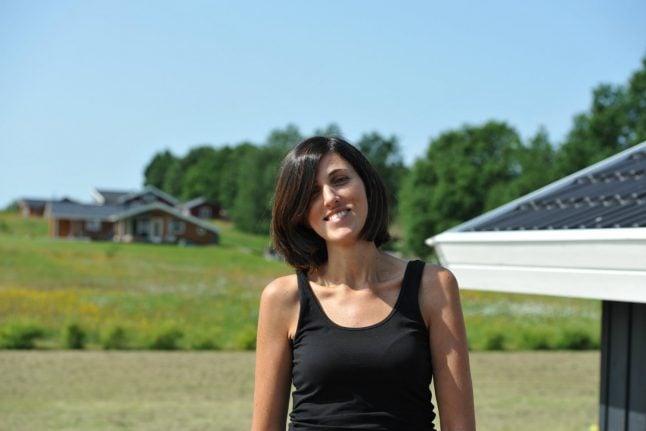Having worked in Spain for seven years in the tourism industry, Mariangeles Claros moved to Denmark in 2014 – but she already knew some of her Danish colleagues.
Claros now works full time as a marketing manager with the Spain-Holiday.com group, which advertises holiday homes in Spain to vacationers in Denmark and elsewhere.
“I started 10 years ago at our main office in Malaga, but being an international company with offices also in Horsens, I was offered the possibility to move to Denmark and have another vision of life, working for the same company but this time with my Danish colleagues around,” Claros says.
The tourist industry marketer actually knew her Danish colleagues before arriving in the Scandinavian country.
“I met them a couple of times a year, and our communication was always via Skype or emails,” she says.
The travel website for which she works was founded 15 years ago by Claus Sørensen, Claros' husband and father of her three children.
“We had a Danish friend in common in Malaga, who introduced us two. We were supposed to help each other in foreign languages – me helping him in Spanish, and him helping me in English – with a cup of coffee at the beach every afternoon. But that cup of coffee went too far… now we have three kids, he is fluent in Spanish, and I am fluent in English, and even in Danish,” she jokes.
The holiday site owned by Sørensen works in 13 different languages, with Claros overseeing the Spanish market.
“The Danish office existed already. I just moved from the Spanish office based in Malaga to the Danish office located in Horsens,” she explains.
Despite the flexibility of working online, being located in Denmark and having specialist knowledge of Spain made the marketing manager a good fit for her Horsens workplace.
“I still work on the Spanish market, but being here in Denmark brought me the possibility to dedicate part of my time to the Danish market as well.
“I am Spanish and work for a website that advertises holiday homes in Spain. My local knowledge about Spain and my proximity to Danish people is a good combination to get a wider vision of how the holiday rental industry works best for Danish tourists,” she says.

With colleagues from Spain-Holiday.com in Malaga. Photo: Spain-Holiday.com
Having first visited Denmark at the turn of the century, the tourism manager said she had always found the work-life balance of the northern country an attractive prospect.
“I was gripped by the Danish hygge from first time I came on a holiday to Denmark 17 years ago. I moved to Denmark with a big desire for freedom for my kids. This is paradise for families with children, despite the weather,” she says.
“Generally speaking this is a country where family matters a lot. I mean, family first. For instance, if your child gets sick, you have the right to paid leave,” she explains.
“I could see that Denmark was a very good place for children to grow. As a mother of three kids living in a busy city, with homework and exams from first grade in primary school, I really saw Denmark as a place to live less stressed and more 'hyggeligt', giving children the freedom and joy they need in their childhood,” she continues.
“That was the real reason that motivated me to move up here, and without changing my job, I felt really fortunate to make this happen,” she continues.
Despite knowing Denmark and having a job in advance of moving to the country, Claros says there was still plenty of work to do to get her career on track in the Scandinavian country – as there would be for anyone taking on the relocation process.
“Denmark is not a paradise for those looking for a dream job. Many people with even two university careers have it difficult here because of the language. English is ok, but not enough. Spoken and written Danish is a must. You need to be really passionate about your career in Denmark and the country itself, including the culture, the people, the weather… and the language,” she says.
“In my case, I never went to a Danish school. I self-learned at home, with the help of my husband, and listening to P4 Danish radio every single morning at work. So you can say that my Danish is very 'homemade',” she says, adding that Danes are “very patient when trying to understand a foreign person speaking Danish”.
The tourist industry manager admits that the climate in Denmark was a factor in her adjusting to her new life away from the sunny Costa del Sol.
“Of course, when you move from Costa del Sol, with an average of 320 days of sun a year, not seeing the sun can be a bit tough. I see how Danes are eating vitamin pills, especially vitamin D, and I am a bit reluctant to do it, even though I know sooner or later I will end up buying those vitamins too,” she says.
“I am also a real spontaneous girl from the south. So a coffee with a friend that needs to be planned three weeks in advance, with a starting and finishing time – that's not my 'cup of tea',” she says.
“So, I of course had to adapt myself to it to be able to get a social life here. That's how it is.”
READ ALSO from our 'My Danish Career' series:




 Please whitelist us to continue reading.
Please whitelist us to continue reading.